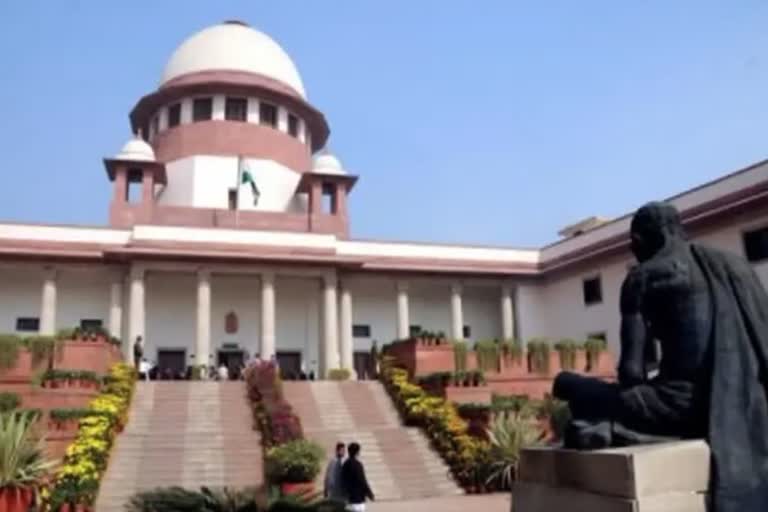New Delhi: People holding public office should exercise self restriction and not blabber things which are disparaging or insulting to other countrymen, the Supreme Court said on Tuesday. The top court said this approach is part of our constitutional culture and there is no need for it to formulate a code of conduct for public functionaries.
A five-judge Constitution bench headed by Justice S A Nazeer, which reserved its verdict on whether restrictions can be imposed on a public functionary's right to freedom of speech and expression, said there is always a civil remedy available to citizens on account of a public functionary making a speech that affects someone.
The observations made by the Court pertains to case related to a statement made by then Uttar Pradesh minister Azam Khan about the Bulandshahr gang-rape case victims. The court was hearing a plea filed by a man whose wife and daughter were allegedly gang-raped in July, 2016 on a highway near Bulandshahr seeking transfer of the case to Delhi and lodging of an FIR against Khan for his controversial statement that the gang-rape case was a "political conspiracy".
The court noted that irrespective of what Article 19(2) may say, there is a constitutional culture in the country where there is an inherent limitation or a restriction on what people holding responsible positions say. Article 19 (2) relates to the powers of the State to make laws imposing reasonable restrictions on the exercise of the right to freedom of speech and expression in the interest of sovereignty and integrity of the country, public order, decency, morality etc.
"It is inherent and there is no need for this court to give a code of conduct on that. Any person holding a public office or is public servant, there is an unwritten rule and it is part of constitutional culture that they impose a self restriction and not blabber things which are very disparaging or insulting to our other countrymen.
"There is something like a constitutional restriction or limitation inherent in such persons. This must be inculcated in our political society and our civic life," Justice B V Nagarathna, who was part of the five-judge bench, observed orally. Attorney General R Venkataramani submitted before the bench, also comprising Justices B R Gavai, A S Bopanna and V Ramasubramanian, that any addition or modification of restrictions to a fundamental right have to come from Parliament as a matter of constitutional principle.
